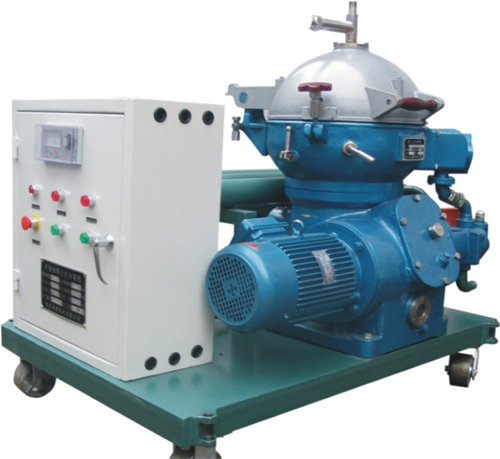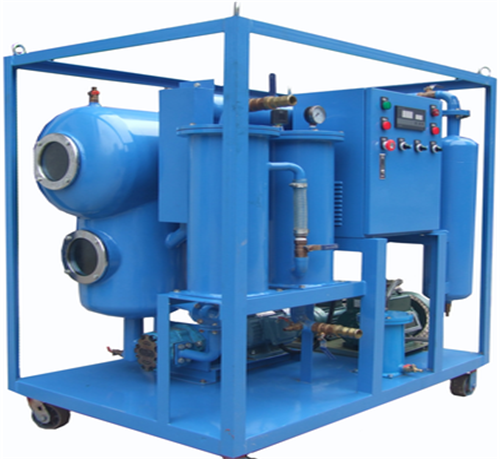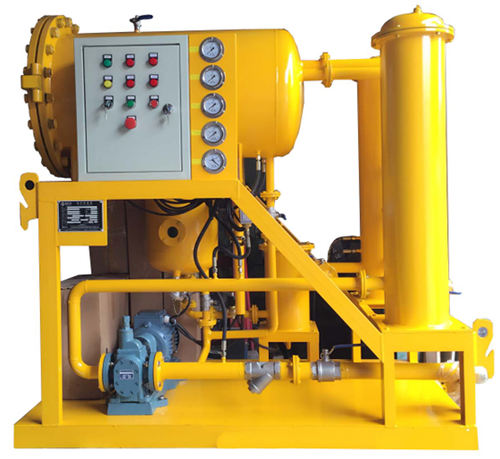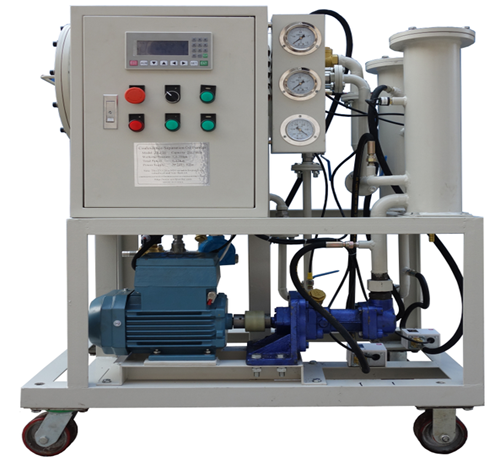Turbine Oil Filtration Machine From China Manudacturer & SUpplier
ZANYO is a leading manufacturer and supplier of turbine oil filtration machines, offering reliable and high-quality purification solutions. We provide vacuum dehydration or centrifugal filtration system, both designed to effectively remove water, gases, and solid contaminants from turbine oil. Our machines are engineered to ensure optimal performance and long-term protection for your equipment. By choosing ZANYO, you will benefit from tailored solutions and excellent customer support.
Understanding Turbine Oil Purification System for Ships
Turbine oil purification is essential for maintaining the health of marine engines and machinery. Over time, contaminants like water, debris, and acids can degrade the oil, leading to equipment failure and costly repairs. Proper oil purification ensures that turbine oil stays clean, extending the life of your equipment and optimizing performance.
To achieve this, using oil purifier on ships is a crucial solution. This machine is designed to remove impurities and contaminants from the oil, improving its quality and ensuring smooth engine operation. If you’re looking to maintain high operational standards, investing in a reliable oil cleaning system is the key to preventing unplanned downtime and costly maintenance.
Benefits of Turbine Oil Purification
- Extended Oil Life: Turbine oil purification removes contaminants, water, and gases, helping to maintain the oil’s integrity, extending its service life, and reducing the need for frequent oil changes.
- Enhanced Engine Performance: By keeping turbine oil clean and free from impurities, the system ensures smooth engine operation, reducing friction and wear on components, which improves overall efficiency.
- Cost Savings: Regular oil purification reduces maintenance costs by preventing equipment damage and minimizing the risk of breakdowns. It also lowers the frequency of oil replacement.
Why Choose Zanyo For Turbine Oil Filtration Machine?
High-Quality and Durable Products
ZANYO’s turbine oil filtration machines are manufactured with high-quality materials and advanced technology. They comply with international standards, ensuring excellent performance and long-lasting durability
Customization
ZANYO offers customizable centrifugal oil filtration systems with options like PLC integration for automation, logo printing for branding, and a selection of filter membrane materials to meet your specific needs.
Reliable Support
From helping you select the right product to offering training, ZANYO provides full support at every stage. Our after-sales service also includes maintenance advice and repairs during the warranty period.
Global Delivery
ZANYO products are available worldwide. We provide local support with multilingual control systems. We ensure transparency in the process with production schedules, photos, and videos. Our goal is to deliver your products on time and meet your expectations.
FAQs
How much water can be allowed in a turbine lubricating oil?
Ideally, the water content in turbine lubricating oil should not exceed 0.1% (1000 ppm). If it goes beyond this level, it can lead to corrosion, oxidation, and sludge formation, all of which negatively affect the turbine’s performance and lifespan.
To ensure your turbine oil stays within the safe water content range, regular monitoring is essential. For this, oil testing equipment is available for purchase. These devices help you keep track of the water levels in the oil, allowing you to take necessary actions, such as oil filtration or replacement, before the oil becomes a problem.
How Does a Turbine Oil Filtration Machine Work?
A turbine oil filtration machine is designed to remove contaminants, such as water, particles, and sludge, from turbine lubricating oil. This is essential for maintaining the performance and longevity of turbine systems. There are two common types of filtration methods used in turbine oil filtration machines: vacuum dehydration and centrifugal filtration.
-
Vacuum Dehydration: This method works by creating a vacuum to reduce the pressure and temperature of the oil. The lower pressure causes the water in the oil to evaporate, allowing it to be removed. The oil is then cooled and returned to the turbine.
-
Centrifugal Filtration: In centrifugal filtration, the oil is spun at high speeds in a centrifuge. This creates a strong force that separates contaminants, such as water and solid particles, from the oil. The contaminants are pushed to the outer walls, while clean oil remains in the center.
What Does a Turbine Oil Filtration System Include?
Filtration Unit
The filtration unit removes solid contaminants from the oil. It has two stages:
-
Primary filtration eliminates large particles, such as dust and metal debris.
-
Fine filtration captures smaller impurities, ensuring the oil stays clean and reducing wear on turbine components.
Vacuum Tank or Centrifugal Separator
-
Vacuum Tank: Works with the vacuum pump to separate and collect water and gases from the oil. The lower pressure inside the tank helps release trapped moisture and air bubbles.
-
Centrifugal Separator: Uses high-speed rotation to separate water, gases, and solid particles from the oil. Contaminants are pushed to the outer walls by centrifugal force, while clean oil remains in the center for reuse.
Heater
The heater warms the oil to an optimal temperature for purification. This improves the efficiency of both the vacuum dehydration and degassing processes, making it easier to remove water and dissolved gases while enhancing filtration.
PLC Control System
The PLC (Programmable Logic Controller) system automates the purification process, ensuring that filtration, dehydration, and degassing operate smoothly. It monitors critical parameters such as oil temperature, vacuum pressure, and contamination levels, making real-time adjustments to optimize performance.
Water Tank
The water tank collects the separated moisture from the oil. It allows for proper disposal or recycling, ensuring that excess water does not re-enter the system.
Pressure Gauge
The pressure gauge monitors the internal pressure of the purification system. Maintaining the correct pressure ensures efficient degassing and dehydration while preventing system malfunctions.




